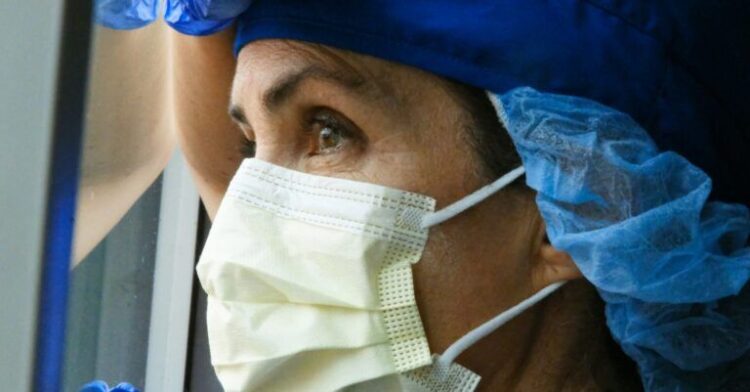By Gabriel Princewill-
The ongoing UK Covid-19 Inquiry was told about the chronic under-resourcing plaguing the care sector which greatly affected the pandemic and also has had dire implications for future pandemic responses.
Representatives from the Royal College of Nursing (RCN) delivered a damning testimony about the severe staffing shortages and burnout crisis faced by nurses, particularly within the social care sector.
Addressing a preliminary hearing preceding the inquiry’s deep dive into the pandemic’s impact on the care sector, scheduled for the summer of 2025, the RCN painted a grim picture of the sector’s readiness to confront such crises.
Fenella Morris KC, speaking on behalf of the RCN, emphasized that the lack of adequate staffing had left nursing members feeling “unsafe” in their workplaces.
Data presented by the RCN revealed alarming statistics, with 73% of nursing staff reporting insufficient staffing levels on their last shift in January 2020.
Furthermore, an estimated 6.8% of roles in adult social care remained vacant in 2020/21, amounting to a staggering 105,000 vacancies. Such chronic understaffing not only jeopardizes patient care but also undermines the nation’s capacity to effectively combat future pandemics, warned the RCN.
The RCN urged the inquiry to consider recommending legislation mandating central government accountability for workforce planning and supply, emphasizing the urgent need for systemic reforms to address recruitment, retention, and burnout among nursing staff.
The failure to tackle these underlying issues, the RCN cautioned, poses a grave threat to the country’s resilience in the face of future health crises.
The inquiry heard troubling accounts of care homes grappling with insufficient personal protective equipment (PPE) and inadequate guidance during the pandemic.
The RCN highlighted how the scarcity of appropriate PPE, testing, and guidance left key workers and vulnerable residents exposed to unnecessary risks.
Nursing staff in care homes, the RCN revealed, were disproportionately affected by these shortcomings, facing heightened pressures and insufficient protection compared to their counterparts in other healthcare settings.
The inquiry also exposed systemic disparities in the perception and prioritization of adult social care, with care homes often treated as secondary to hospitals.
This disparity, according to the RCN, contributed to care homes feeling compelled to accept untested discharged patients, potentially exacerbating mortality rates among residents.
Ms. Morris aptly likened the social care sector’s vulnerability at the onset of the pandemic to a weak structure susceptible to collapse under pressure.
The compounding effects of staffing shortages, COVID-19 infections among workers, and inadequate support mechanisms inflicted profound moral distress and psychological injury upon nursing staff, she emphasized.
Responding to the revelations, a representative for the Department of Health and Social Care reaffirmed the government’s commitment to learning from the inquiry’s findings and implementing necessary reforms.
The Eye Of Media.Com is keeping abreast with the Covid inquiry, and has been communicating with a number of medical practitioners in the field about their experiences during the pandemic.

